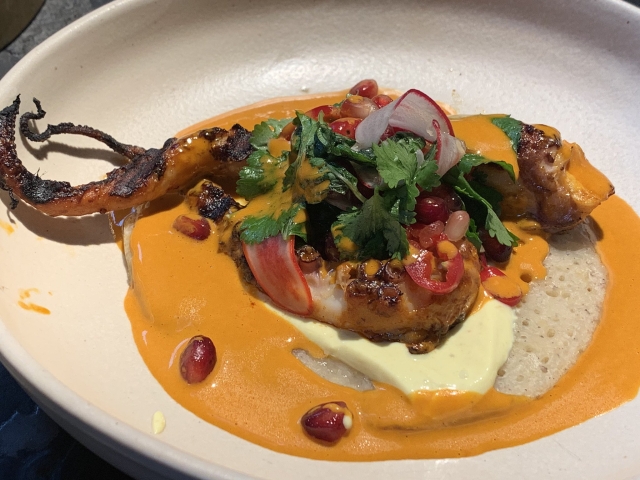Machneyuda, the restaurant that turned open market restaurants into a whole new culinary experience, is a place everyone (if they do not hold to kosher laws) must visit at least once in Jerusalem. With their precise and sleek kitchen, a relaxed atmosphere great service - this is the place to feel at home, enjoy the fresh ingredients, the sounds and smells of the market, and feel the joy of innocent and simply wonderful food
Machneyuda is famously known for its head chef, Assaf Granit, who is a world-famous Michelin star chef with restaurants all over Europe and Israel. “Granit and his partners had created a new genre of Israeli eateries: the market restaurant,” said Orly Segal, who worked with Assaf in the past on advertising.
Yesterday I was at one of the best restaurants I've been to in my life called "machneyuda" in Jerusalem by the Michelin chef Assaf Granit. It was a culinary out of body experience that pics cannot grasp, so instead of food pics here's a bit of the atmosphere in the place pic.twitter.com/4xEOS66vzx
— ᑎᎥᖇᗩᑎ 🌻 (@NiranEC) August 11, 2021
Opening its doors back in 2009, the market restaurant quickly gained its legendary status as a fusion cuisine between the old and new. Main courses like a braised lamb in a harissa sauce accompany other more modern sides like their famous truffle polenta.
The restaurant, along with many of Assaf’s restaurants in Israel, is located in Jerusalem for a reason. The capital of Israel has a retro-like culture that cannot be found in many cities these days, including Tel-Aviv, which is considered the culinary capital of Israel.
The fresh smells of the market just minutes away, along with the uplifting music and vibrant staff, is all part of a one-in-a-kind experience.
Shopping with London-based chef Assaf Granit in Mahane Yehuda market ahead of lunchtime rush @MachneYuda restaurant pic.twitter.com/SmphrMism9
— Mayor's Press Office (@LDN_pressoffice) November 10, 2015
For first-timers, the tasting menu is recommended with over 7 courses and immense flavors with each new menu, its hard not to feel the love poured into the food.
Granit and his culinary career are considered a fashion icon in Israel. “Fashion interests me—I educate myself on it,” Granit said. “It’s a natural connection for someone who’s a creator, like myself.” Granit also once said that, while collaborating on a food and fashion talk a few years back, he realized that the two fields share the same approach in Israel: “at first, a strong historical urge to be like someone else, not be local, and then, later, embracing our roots and understanding that what we have at hand is much more interesting.”


